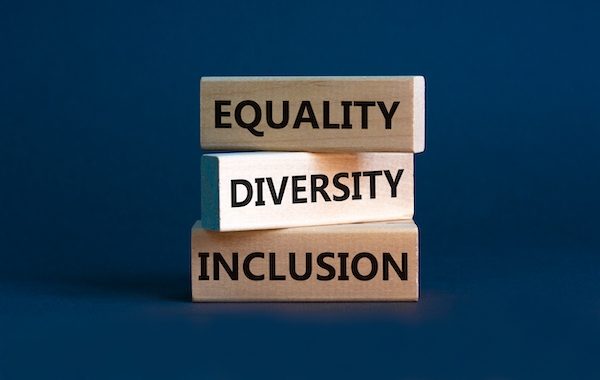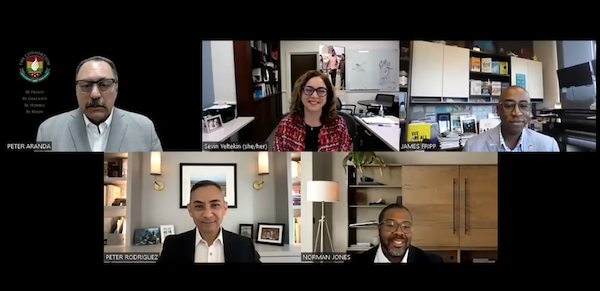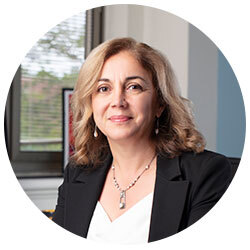Leaders in business & education discuss EDI

Leaders in business & education discuss EDI
May 23, 2023 | By Dean Sevin Yeltekin
Recently we had the pleasure to partner with The Consortium to gather a distinguished panel to discuss EDI issues and ways to create long-lasting impact in the workplace. The panel—moderated by Peter J. Aranda III, executive director and CEO of The Consortium—included professionals in business and education who are doing groundbreaking work to advance equity, diversity, and inclusion on campus as well as the workplace:
- Dean Peter Rodriguez from the Jones Graduate School of Business—Rice University
- Chief Diversity, Inclusion, & Belonging Officer James Fripp of Yum! Brands
- Director of Global University Recruitment Norman Jones from Danaher Corporation
It was an enlightening discussion with many perspectives brought to the table. In this blog post, I share a summary of just some of the topics we touched on; however, I encourage you to watch the entire webinar here.
During my time at Simon, we have prioritized equity, diversity, and inclusion (EDI) issues, and I’m proud of our commitment to inclusive education. In 2021, the Simon community was ranked the most diverse among the top business schools in the United States (U.S. News & World Report, 2021). In 2022, our full-time MBA Class of 2022 hailed from 19 different countries, while 46% of domestic students were from historically underrepresented groups, and 42% were women. Today, we address opportunity and access as one of the four pillars in our strategic plan, Simon 2025.
But Simon’s history of EDI issues goes back much further. In fact, in 1968, Simon joined The Consortium for Graduate Study in Management, at the time, one of only four business schools in the country to do so. The Consortium is the nation’s largest diversity network, and its mission now is the same as it was then—reducing underrepresentation of African Americans, Hispanic Americans, and Native Americans in business schools and global management. Over the years this organization has helped more than 10,000 of the country’s best MBA students achieve their goals.
Simon has always valued our relationship with The Consortium—25 percent of our MBA students are members. And while our track record is undeniable, we can’t be complacent or rest on our laurels. There is still much work yet to be done.
What is the business case for EDI?
We see growing evidence that diverse teams are more productive and can better drive profitability. But why? There were several examples panel members shared that supported this claim. James Fripp from Yum! Brands referenced data trends suggesting that most of the growth in the future of the United States will come from multi-cultural people, which has impacted his company’s long-term strategies.
“In order to be relevant, you need to be representative in your organization … to get influence, impact, ideas and innovation,” said Fripp. “This representation should exist not only in the most junior levels but all the way up through leadership. If we don’t have those multi-cultural people in our organization, our business will become irrelevant and tail off.”

Clockwise from top left: Peter J. Aranda III, Dean Sevin Yeltekin, James Fripp, Norman Jones, and Dean Peter Rodriguez.
Norman Jones from Danaher Corporation raised the question of why a business case should be made for EDI in the year 2023. His point was well taken by the other members of the panel who agreed the argument should be made from a moral rather than financial standpoint. Jones went on to say, “The world is diverse. Business schools and workplaces should reflect the world we are living in. Diverse teams bring new thoughts and ideas to the table, which can foster inclusive learning in the classroom while also driving profitability in the workplace.”
How can business schools prepare future business leaders to be change agents?
To show our students how to be change agents, I strongly believe we need to be change agents ourselves. Inclusion should be infused into the fabric of our institutions and expressed in our communications. Advancing real behavioral change is different than academic training in a lot of ways, but similar in others. Just as in disciplines such as computing, math, or finance for example, training students to be future change agents truly takes practice. We should create curricular and co-curricular opportunities to practice thinking every day about who is being included and who may be excluded.
Dean Peter Rodriguez from the Jones Graduate School of Business—Rice University agrees with the concept of practice. “I think the number one thing you do is give students the confidence to speak, you give them chances to find their voice, then we need to model some of the practices they can use to have conversations that are often difficult,” he said.
What are some of the effective EDI initiatives businesses are using that can be imported into business schools?
This question was asked of our two colleagues in the corporate world, both of whom suggested the concept of reverse mentorships. Traditionally, these pair-ups include a junior employee mentoring a high-ranking executive. However, as James Fripp suggested, these relationships don’t have to just be senior to junior. The concept could be expanded to include two people of different cultures, abilities, backgrounds, and other differences.
“The whole notion of reverse mentorships is to set individuals up to have the permission to learn about each other—as long as the mentality coming in is not to impart knowledge from on high but to build a relationship and have open dialogue,” he said.
Norman Jones has seen first-hand how reverse mentorships can be utilized to create better allies. “I’ve had the opportunity to mentor senior leaders on what it’s like to be a Black gay man in America,” he said. “I’ve also had the privilege of being mentored by women, people with disabilities, and veterans. By hearing their stories, I can get a sense of what they’ve been through to get to where they were at that present day and time when we were meeting.”
Jones also suggested other initiatives business schools could put in place to build an inclusive culture: training on pronouns, making sure video materials have closed captions, and having sign language interpreters present at events.
As we all know, meals are often an important aspect of social and professional gatherings. When planning these events, we need to be conscious of those observing holidays by fasting.
Additionally, Jones recommended providing gluten-free, vegan, vegetarian and nut-free options. Later in the discussion, Dean Rodriguez touched on other opportunities to make people feel included during events, especially during holidays.
“The subject of food and drink actually comes up a lot during all times of year but especially when different holidays are concerned,” said Rodriguez. “When having celebrations with alcohol, it’s extremely important to offer non-alcoholic drink options as well.”
How can we increase honest communication about EDI topics?
Another subject that came up, again and again, is how to discuss hot-button topics in a way that is respectful to all involved. The answer, I believe, is giving people the grace to be able to stumble and make mistakes, which even includes saying the wrong things from time to time. If we constantly fear talking about these issues with each other, we’ll never learn from one another.
Peter Rodriguez emphasized the need for students to have conversations with people who are different from them. He made the point that by not sharing our perspectives, we miss out on a big opportunity to grow.
“In this day and age, students are finding there is great safety in silence, and they’re a little worried about offending,” he said. “To get around that, we need to provide venues where people can talk about topics that are seen as sensitive—where they can be comfortable expressing their own ignorance and asking questions that aren’t so easy.”
Norman Jones agreed and said while this may be difficult, it will lead to results. The key, he said, is understanding. “A lot of times when we talk about EDI, people always feel a little nervous because they don’t want to offend,” he said. “We need to make sure everyone has an understanding that people are coming to learn and gather knowledge, and no one is coming to the table with ill intent. It’s sometimes going to get messy and it’s going to be challenging, but if you come to the table with respect and a willingness to learn, then you can get to where you want to be.”
At this moment in time, business and business education are at a crossroads, where we can choose the status quo or collectively hold each other accountable to being agents of true change. I’ll end this post with the opening remarks from our esteemed moderator, Peter J. Aranda, who began the session and summed up the spirit and purpose of our conversation by saying, “Collectively, we seek to change the perceptual framing of EDI from a minority problem to an American opportunity.”


Sevin Yeltekin is the Dean of Simon Business School.
Follow the Dean’s Corner blog for more expert commentary on timely topics in business, economics, policy, and management education. To view other blogs in this series, visit the Dean's Corner Main Page.
Add new comment